Kitchen Color Combinations: How to Choose the Perfect Palette
Choosing the right color palette in the kitchen is one of the most defining factors for the final look of the space. Kitchen colors do not only serve an aesthetic purpose but also affect functionality, brightness, and the mood of those using the room. A well-balanced palette can transform a simple kitchen into a space of high aesthetics and ergonomics, whether it is a modern or a more classic kitchen.
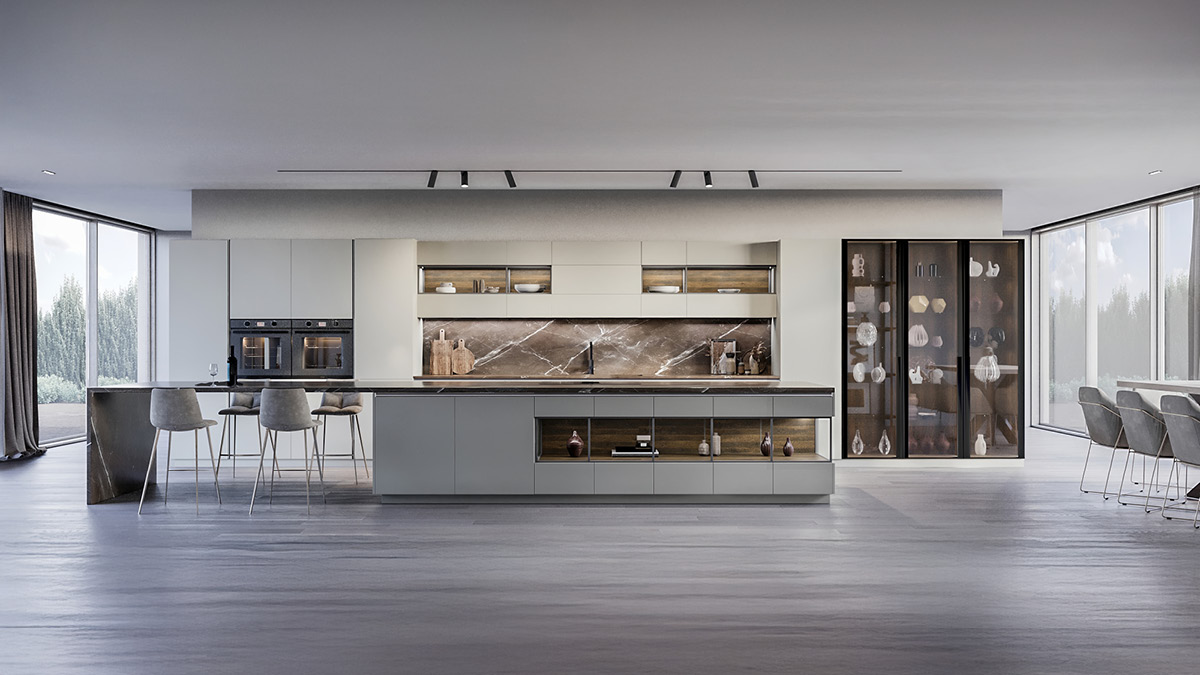
Classic Combinations
Classic kitchen color combinations have stood the test of time because they offer timelessness, balance, and elegance. They are the safe choice for those who want a kitchen that will not be outpaced by trends.
White – Black
The white and black combination is the most classic and elegant option. White brings light and purity, while black adds depth and character. The balance between the two depends on the style you want. For example, a white kitchen with black details gives a minimal aesthetic, while a darker base with white elements creates strong contrast.
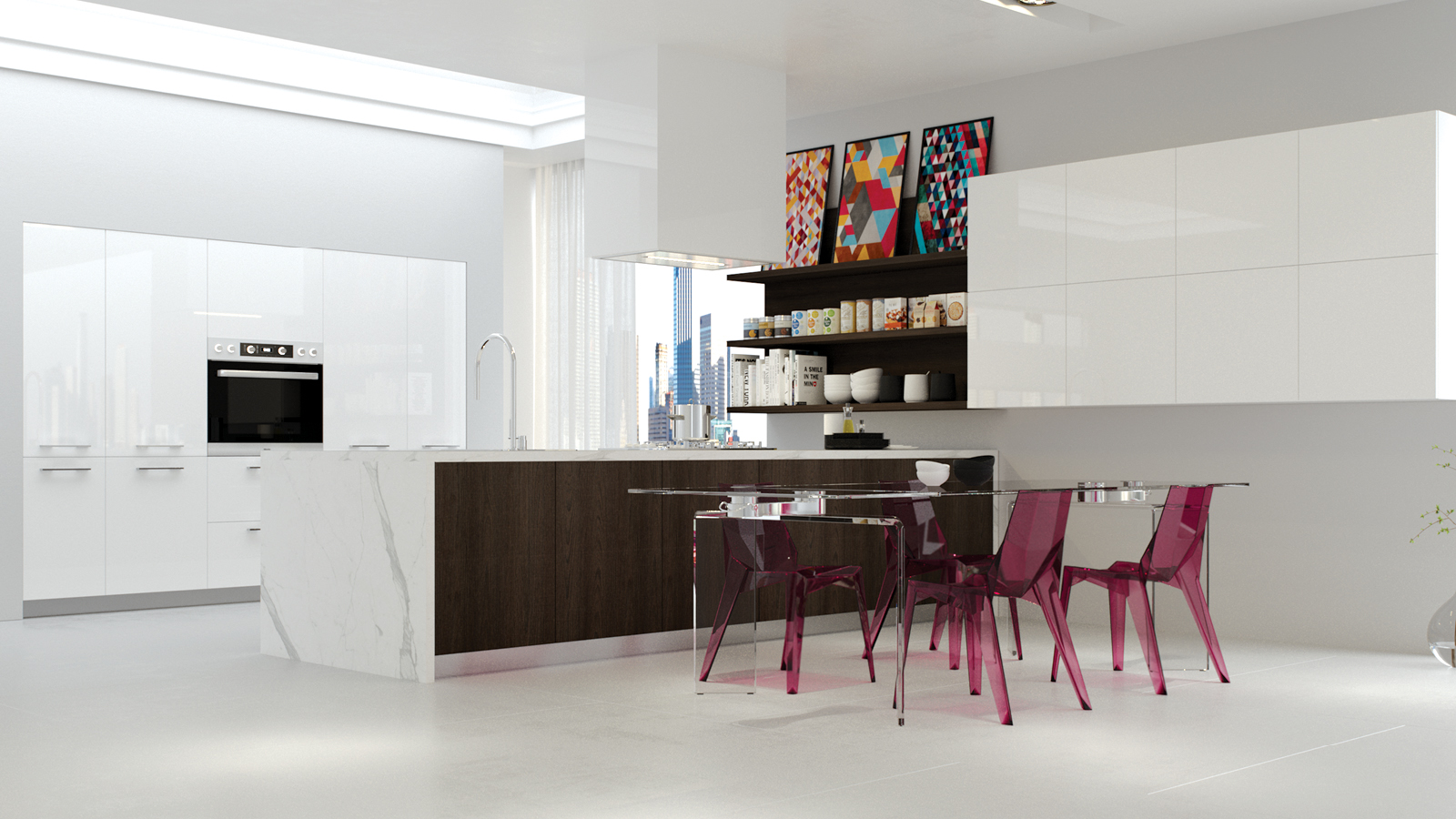
Wood – White
The mix of wood with white is a timeless choice that blends natural warmth with brightness. Wood offers coziness and a sense of natural harmony, while white brings cleanliness and freshness. This combination suits homes that want to merge tradition with modern design.
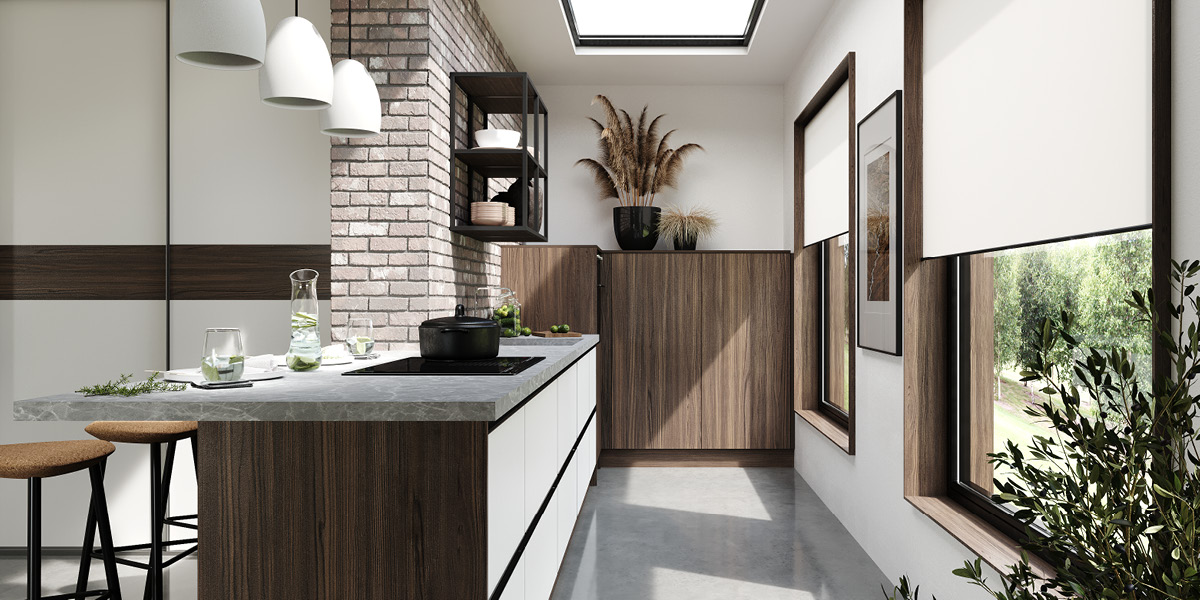
Earthy Tones
Earthy shades such as beige, brown, and gray bring balance and natural calmness to the space. This palette remains relevant and fits both classic and modern kitchen designs. These tones are also versatile, easily pairing with materials ranging from marble to metal.
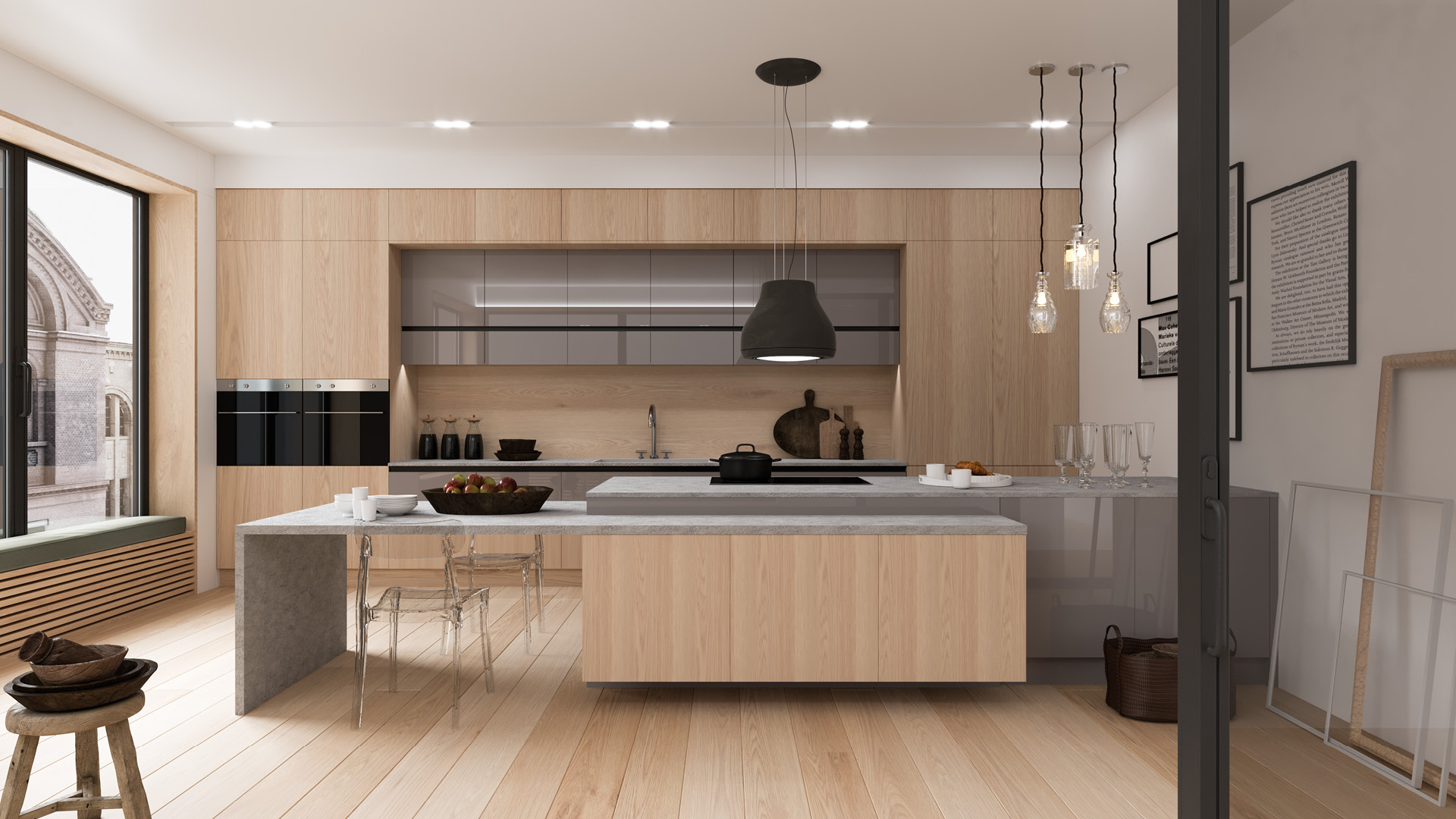
Modern Choices
Modern kitchens emphasize bold color selections, creative combinations, and individuality. If you want your kitchen to follow contemporary trends, consider the following ideas.
Pastel Colors
Pastels are ideal for those who want to create a bright, cheerful space without exaggeration. Light blue, mint green, or soft pink can give a playful yet elegant touch to the kitchen. They are especially suited for small spaces as they visually expand the room.
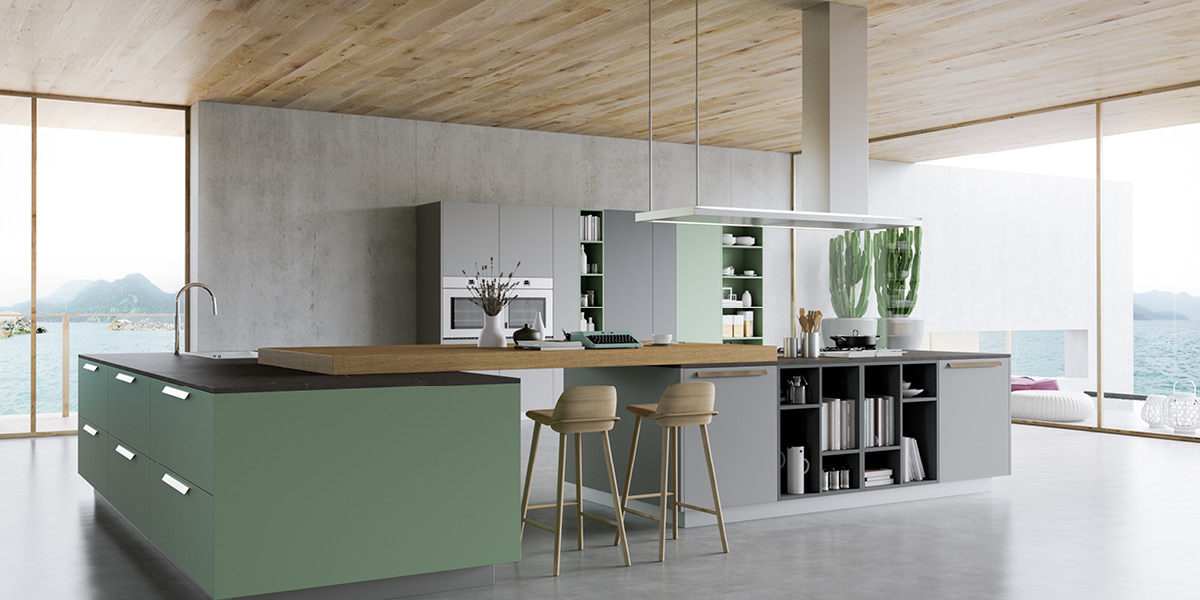
Bold Contrasts
A dominant trend in modern kitchens is strong contrasts: deep blue with white, emerald green with gray, or even red with black. Contrasts add character and dynamism, making the space unique.
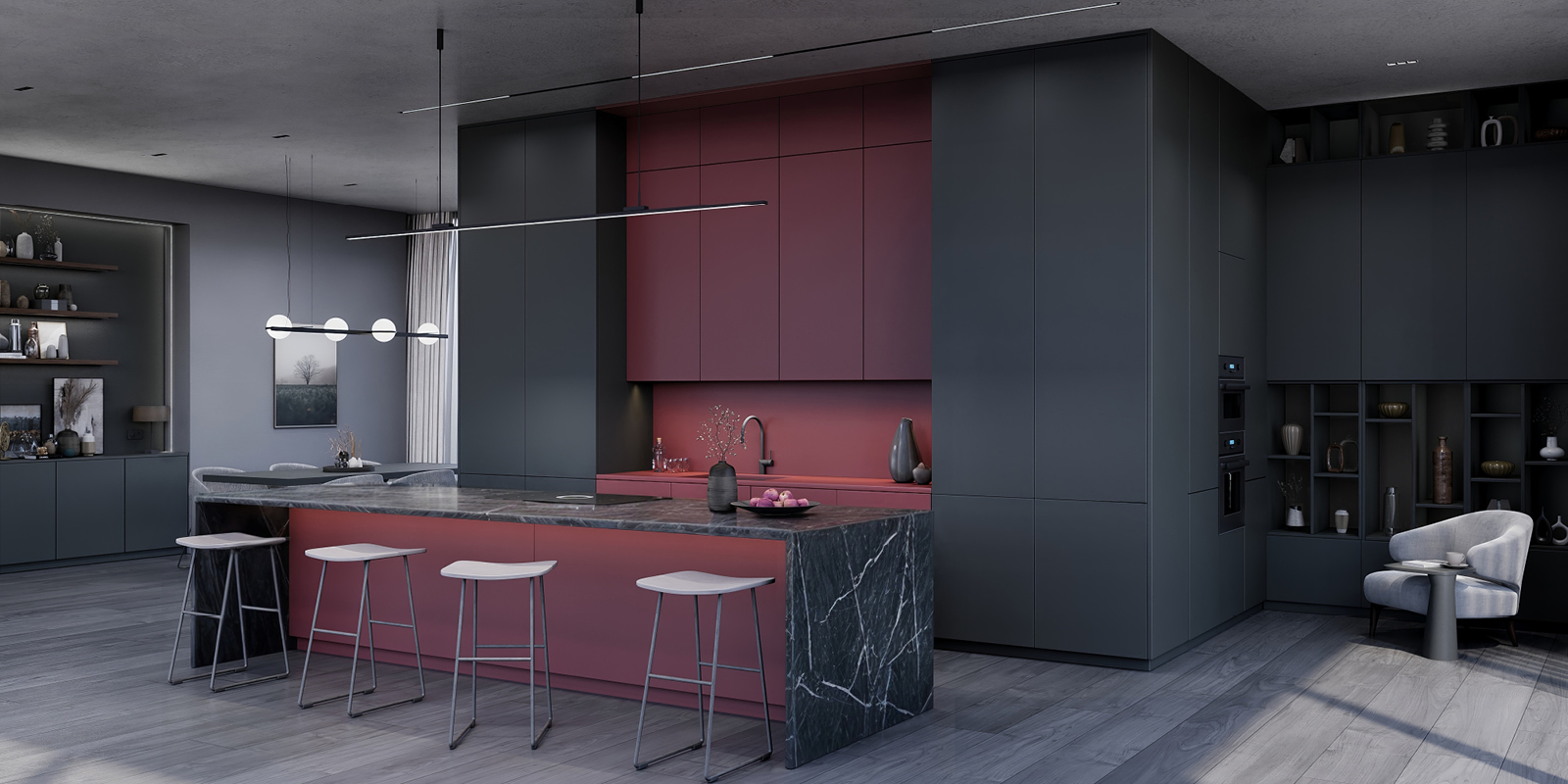
Industrial Style
Industrial style highlights cooler tones such as gray, black, and metallic details. It is often combined with exposed brick or wood to balance the coolness with warmth. This option appeals to those who love an urban character and clean lines.
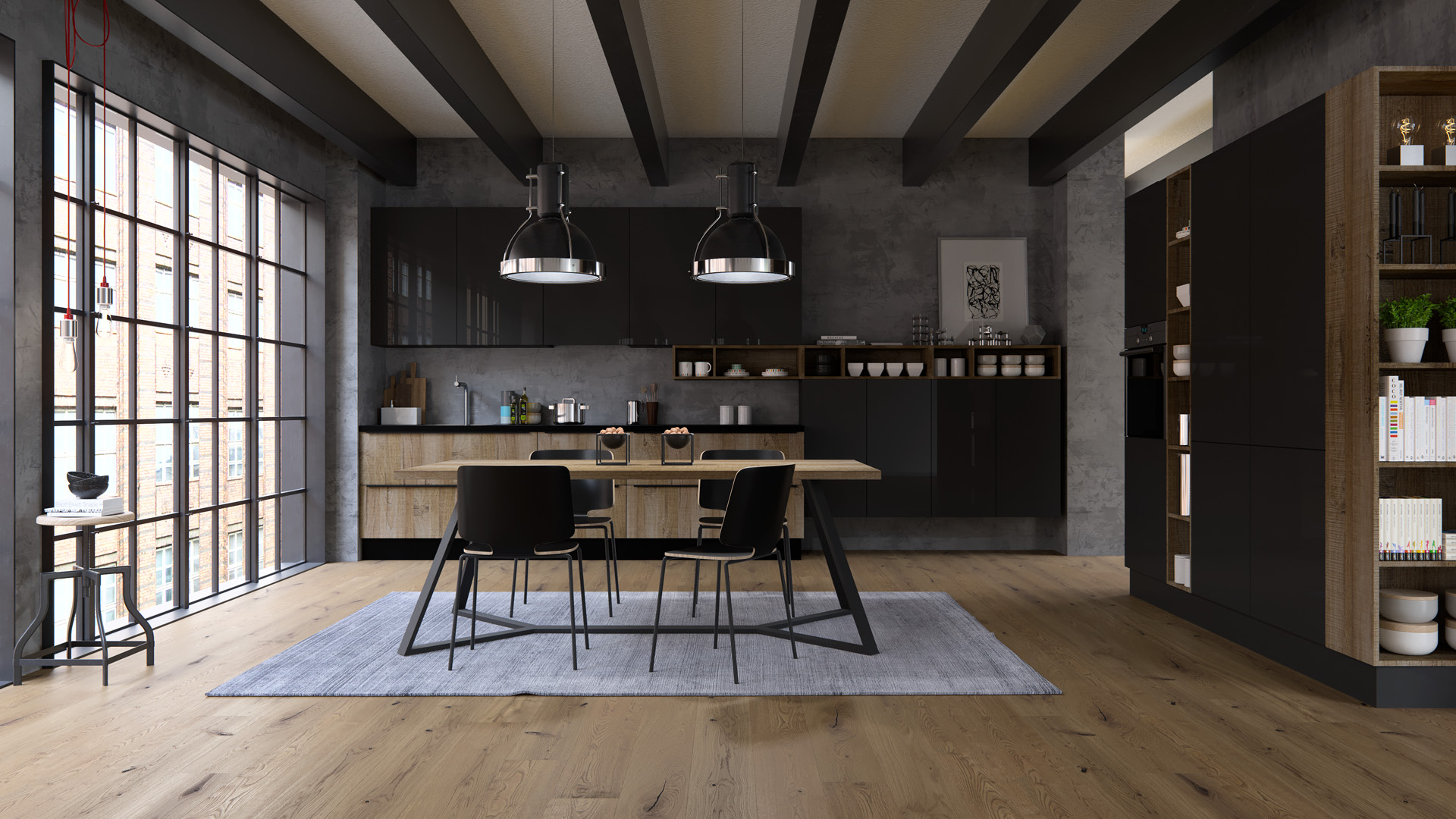
Practical Tips
Choosing kitchen colors is not only a matter of aesthetics but also practicality.
Matching Colors with Lighting
Lighting is a decisive factor in how kitchen colors appear. In spaces with abundant natural light, you can opt for darker tones, while in kitchens with limited light, lighter shades are better to brighten up the room.
Colors for Small vs. Large Spaces
In smaller kitchens, light colors and pastels make the room appear larger. Conversely, in spacious kitchens, you can experiment with darker and bolder tones that add personality.
2025 Kitchen Color Trends
The new trends for 2025 focus on harmony with nature, sustainability, and the creation of spaces that inspire positive energy.
Best Sellers in Modern Kitchens
This year’s best sellers include shades like olive green and natural wood. These combinations embody natural elegance while remaining practical and durable over time.
Interior Designers’ Preferences
Interior designers emphasize kitchens that blend neutral tones with a bold accent. For example, a white kitchen with green cabinets on the island or a gray set with golden details. The goal is balance between minimal design and strong personality.
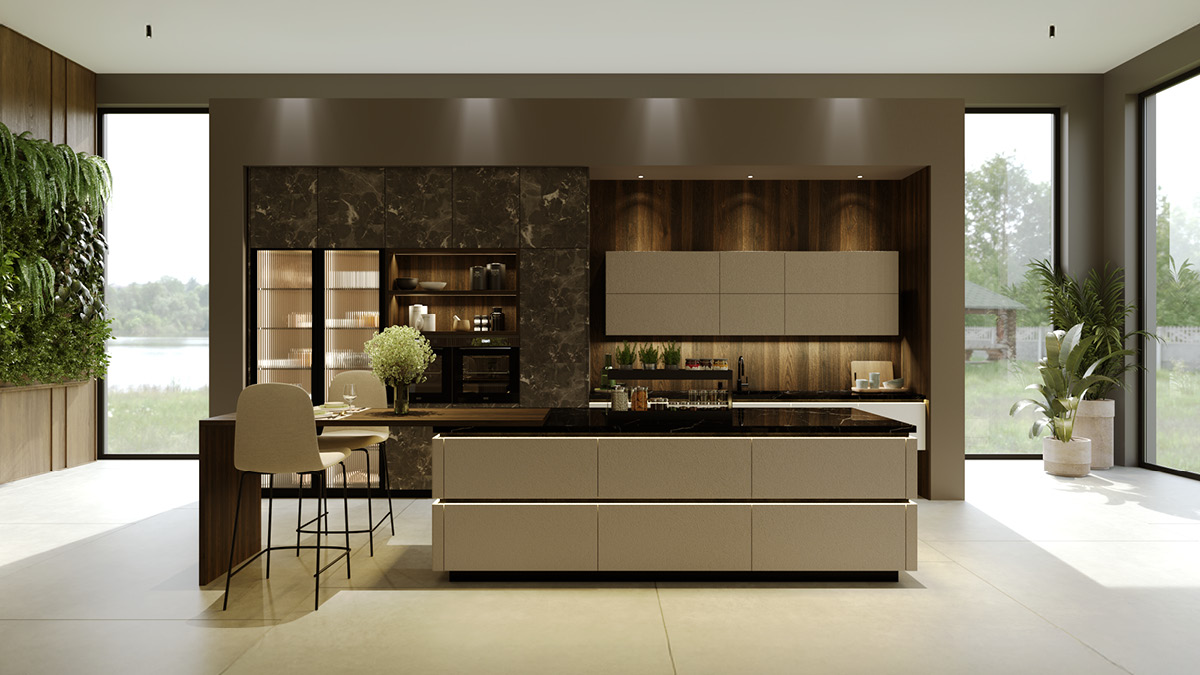
Conclusion & Palette Selection Guide
The choice of a kitchen color palette depends on your personal style, the size of the space, and the lighting. Classic kitchens remain timeless with neutral combinations, while modern kitchens open the door to bolder choices. What matters most is to create a space that inspires you every day and matches your lifestyle.
CENTRO Tip: When choosing kitchen combinations, think first about the materials and textures that suit you, and then about colors. A natural wood surface or marble countertop can define the palette of the entire space.